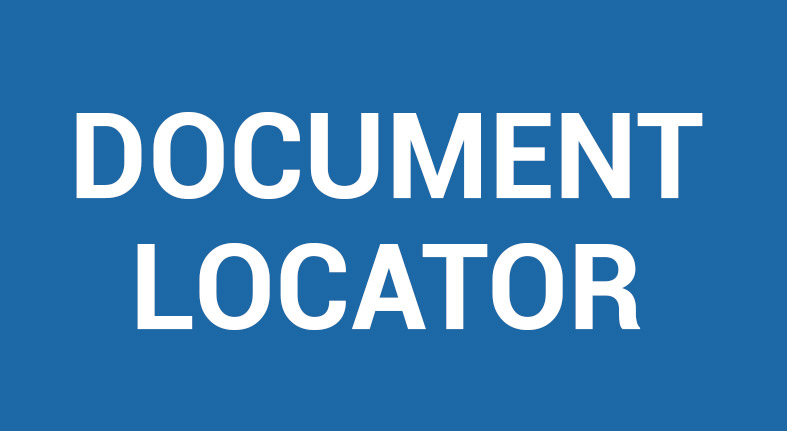For people with disabilities, WILS makes a difference.
West-Central Independent Living Solutions (WILS) is a center for independent living in Missouri. Its mission is to empower people with disabilities to achieve independence by providing them five core services: information and referral, advocacy, peer support, skills training and transition programs.
For disabled persons in the region who choose to hire a personal care attendant, WILS provides employment services (such as background checks, payroll, tax filing and so on), interfacing with 600-800 workers across six counties. Every two weeks, the company processes a time sheet for each worker. “That’s a lot of paper,” said Daniel Naylor, director of IT.
It’s also cumulative. Bear in mind, WILS is required to maintain its records for at least ten years. With a weekly average of 350 time sheets multiplied across a decade, the product is 182,000 pages – that’s more than ten large filing cabinets’ worth.
So much for time sheets. WILS maintains many other records as well. In fact, due to the nature of their work, the record-keeping standards to which they’re held are nearly as stringent as those required of medical establishments. Long story short, WILS was running out of room.
Elaborate mechanized cabinetry was not the answer.
When Naylor came onboard, WILS was pricing mechanized cabinet systems to address their overwhelming need for space. The file room was not enough. New cabinets had started appearing in every corner of the office, even in the conference room.
The filing system they were considering promised to expand their storage capacity, but it would cost many tens of thousands of dollars, and, to make it fit, they would have to raise the ceiling. More importantly, its capacity was limited. They were sure to outgrow it eventually.
For Naylor, this spelled a value proposition that made no sense. As director of IT, his job was to look for opportunities to kickstart the company’s use of technology. “I said it’s a paperless world we’re heading toward, so let’s make the move,” Naylor said.
Lack of space wasn’t the only concern driving WILS to go paperless. The company is headquartered in tornado alley, with multiple offices located across six counties. Faced with a fire or tornado, their records could be decimated overnight.
Finally, the manual process they were using to handle workers’ time sheets came with radical inefficiencies, not to mention a great deal of stress. Workers would mail in their time sheets or drop them off at one of the company’s locations; from there, the papers would have to make their way back to the main office. Once a week, someone in each location would collect as many time sheets as they could, then physically transport them thirty minutes to an hour away (1-2 hours round-trip). With five offices at the time, WILS was losing 5-10 hours a week in transit alone.
Once the time sheets were received, payroll would spend many more hours in manual review, sorting through hundreds of papers in whatever condition they might have arrived. Meeting the Friday deadline always required a huge push; in fact, the process consumed five days every other week: 50 percent of the department’s time. With 4-5 people on the team, that’s an average of 90 hours a week spent on time sheets alone.
For WILS, it was time to go paperless.
Twelve years before joining WILS, Naylor co-founded a computer company where he’d once helped research paperless document storage solutions for a local law office. He had come across ColumbiaSoft back then. Now that WILS needed a similar solution, Naylor remembered ColumbiaSoft and made sure to include them in the selection process.
ColumbiaSoft wasn’t the least expensive option, but their presentation was more personable and genuine, and their solution, Document Locator, was a custom fit. “They wanted to customize a system to fit our needs,” Naylor said. “It wasn’t just a cookie-cutter situation.”
WILS decided to go with Document Locator, and ColumbiaSoft came on-site to understand how the solution could best work for them. “They really took the time to understand how our business operated,” Naylor said. “We could have just brought in Document Locator and used it at face value, but their professional services team really made it something unique.”
The transformation began with time sheets … but it didn’t end there.
Document Locator transformed the way WILS processes time sheets. The receptionist at each office now simply scans them in as they arrive. With a bar code on each sheet, much of the information is captured automatically. Payroll still reviews each record, but because the information is already digital, data entry is much faster.
In short, a job that used to run up against the deadline every other Friday is now out of the way by Wednesday afternoon. With two full days of work saved among 4-5 people (an average of 20 hours a week), payroll has much more freedom to manage their other responsibilities.
User acceptance was hesitant at first. But now that WILS has transitioned to Document Locator, it’s hard for the team to imagine how they functioned without it. Time sheets were merely the first step; nearly everyone in the company now uses Document Locator to some extent, from case management to administration.
“We’re organizing the chaos, getting everything into Document Locator where you can find it more easily, and it’s more secure and safer,” Naylor said.
For example, routine quality-control checks are now painless. Every month, supervisors at WILS choose files at random and spotcheck them for errors. Before Document Locator, they would physically transport a stack of binders to a given office, where they’d meet in person and go through them as a group. Today, each person can conference in from their own desk and review the records on their computer. The information is centrally accessible; it’s also centrally backed up.
WILS has also integrated Document Locator with the electronic signature solution DocuSign to facilitate case management. The company’s caseworkers, or independent living specialists, make monthly contacts with consumers. To document this, they generate narratives in their system, which print to Document Locator. Once a day, Document Locator initiates a workflow, grouping narratives by specialist and routing them to DocuSign for signature. Once signed, Document Locator files the narratives in the appropriate consumer folder.
Perhaps the biggest difference, though, emerged during the auditing process. WILS receives grants from organizations including Missouri Vocational Rehabilitation, Missouri Medicaid and others, and is audited routinely. After implementing Document Locator, audit preparation took only a day or two, and the auditors found no errors. “They just loved the fact that they could punch in a name and see everything at a glance,” Naylor said. “It made the auditing go really quickly.” In fact, the process went so smoothly, everyone got to go home early that day.
For the future, Naylor expects to incorporate Document Locator in every aspect of the company’s business. From tax records to reconciliation reports, every document that once consumed space in a paper folder will eventually be made paperless.
Suffice it to say, those file cabinets in the conference room are long gone.
Learn more
Be ready for the next audit
Employee files under control
Structured project files
Automate business processes
Ready for a Demo?
Take the first step towards streamlining your processes and enhancing collaboration with Document Locator. Request a demo today and discover how our document control solution can help your organization.
Fill out the form to get started.




